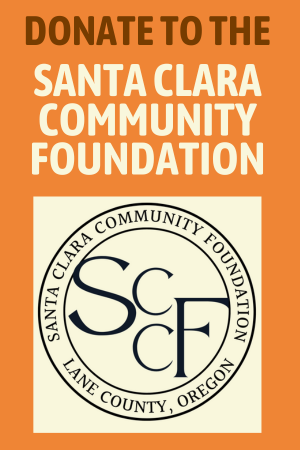Thursday, November 6
7:00 PM
3280 River Road (Messiah Lutheran Church)
Online on Google Meets:
Video call link: https://meet.google.com/afq-hgqq-ctc
Or dial: (US) +1 218-301-2948 PIN: 895 118 056#
Main topic: A guest presentation by Laurel Hill Center, a mental health services and housing provider, will be featured at our November 6th SCCO meeting. They are preparing to build a 54-unit housing development off River Road near Hunsaker and would like to engage the community in their process.
There will also be an update to the fundraiser for a memorial bench for Carleen Riley, a major advocate for the River Road area. To learn more about the fundraiser, see our website article.
Discover more from Santa Clara Community Organization - Eugene
Subscribe to get the latest posts sent to your email.


I’m just wondering why most of the low-income, mental health patients, and homeless ciiizen housing ends up in santa clara/river road? what’s wrong with the south hills or ferry street bridge area??? you know, where the rich people live??
Gwen, please show up at the meeting (or online) and ask the question. Laurel Hill Center has not submitted any applications for permits, so the meeting is a great opportunity to ask questions and voice opinions.
I don’t know if there is a comprehensive map of all of the housing you refer to. Homes for Good does have a map of their locations. There are other facilities not on the HforG map, including along West Amazon and in the Ferry Neighbors area.
Note that one of the reasons is that the entire stretch of River Road all the way to the overpass has available land to build.
why not build where there is a vacant lot (old bus terminal) parcel.
The Oregon Medical Building is already there, in case anyone needed mental health assistance.
Or, develop the corner of Northwest Expway and Chambers or somewhere on Railroad Way. Housing instead of the Adult Shop…
This seems like a lot for this location and concerning. Additinoal traffic congestion – it’s already a crazy intersection to manuever. This development could make the new bus terminal area, less safe, and it’s too close to residental and schools/children. Why would tax payers want to jepardize their personal safety (walking in the area, to and from shopping, school) I looked up Laurel Hill and this is how it was explained “adults experiencing serious and persistent mental illness”
*** You should re-resend your Thursday, Nov 6th meeting notification and include this definition:*** So people joining the meeting and/or living in the area are truely / fully informed. Everyone in the area should be receiving a postal mailer – notifiying us what is being discussed/planned. A better / safer location should be identified.
What are the primary goals of Laurel Hill Centers in eugene Oregon
The primary goals of the Laurel Hill Center in Eugene, Oregon, are to help adults experiencing serious and persistent mental illness make choices and acquire skills that increase their self-reliance and ability to live and work in the community.
Key objectives and strategies that support these goals include:
Promoting Independence and Recovery: Providing individualized, recovery-focused psychiatric rehabilitation services using evidence-based practices to support participants on their path to recovery.
Enhancing Daily Living Skills: Helping individuals acquire and maintain skills necessary for daily living, which may have been affected by their mental health condition.
Securing Stable Housing: Offering housing services and support, including owning and managing low-income housing units and providing housing navigation assistance and rental aid to prevent homelessness.
Supporting Employment and Education: Integrating supported employment and education services into recovery plans to help participants pursue their vocational and academic goals and achieve economic self-sufficiency.
Providing Integrated Care: Offering a comprehensive range of outpatient mental and behavioral health services, including case management, therapy, medication management, and peer support, to meet clients’ varied needs.
Building Community and Support: Fostering a supportive environment through programs like the Pathways Wellness Center, where individuals can connect, socialize, and receive peer support.
Ultimately, Laurel Hill Center is committed to helping individuals lead safe, satisfying, and meaningful lives within their chosen communities.